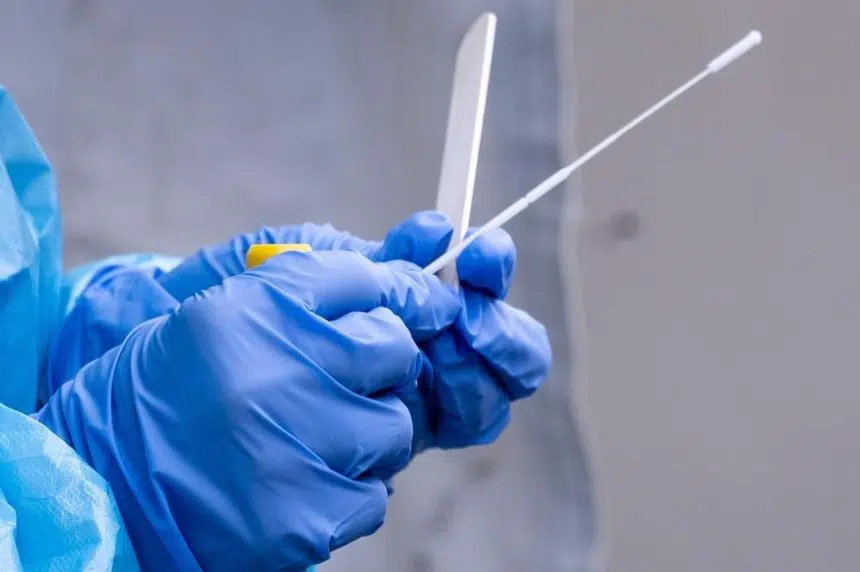Saskatchewan is still weeks away from a peak in Omicron cases.
Dr. Saqib Shahab, the province’s chief medical health officer, told reporters during a conference call Tuesday the wave likely will hit its peak in the province in the next two to four weeks.
“We really need to minimize our non-essential contacts for the next two to four weeks,” Shahab said.
“We need to take measures now to make sure that our wave, our peak, our Omicron surge is as low and broad as possible and doesn’t come throughout the province at the same time.”
Those measures include masking, proof of vaccination requirements and getting booster shots. Premier Scott Moe previously has said the province won’t be introducing any further public health measures to stop the spread.
Shahab noted Regina and Saskatoon are a week or two ahead of the rest of the province when it comes to cases of the latest COVID-19 variant, so the peak likely will occur in different areas at different times.
Another week or two after the peak hits would be required to start to see cases decline in hospitals.
As of Tuesday, there were 189 people with COVID in Saskatchewan hospitals. That number has increased by 110 since Dec. 31.
Over the weekend, Saskatchewan’s Royal University Hospital and St. Paul’s Hospital reported a surge in patients.
Derek Miller, interim chief operating officer for the Saskatchewan Health Authority, said that staff absenteeism is still a problem facing hospitals in the province and that capacities at hospitals are being watched closely.
“We are starting to see some increases in Omicron cases and we need to be able to be prepared to respond to that,” Miller said.
He emphasized surge plans are prepared and in place for hospitals to try and minimize Omicron’s impact on hospital services and reduce potential slowdowns.
December data
The major takeaways from December’s breakthrough data showed that getting boosted against COVID does help.
People who had the booster accounted for only seven per cent of the province’s 4,621 cases in December.
Shahab said being double-vaccinated didn’t stop people from getting Omicron, according to last month’s numbers, but it did play a role in keeping them out of hospital.
Shahab said Omicron is now firmly established across the province, with almost no Delta remaining. That fact makes the booster dose for people over the age of 18 even more critical.
Data shared by Shahab on Tuesday showed only 65 hospitalizations in December were due to COVID. Forty per cent of those hospitalizations were patients who were not vaccinated and another 40 per cent were over the age of 65.
Of the 27 hospitalized cases with a second dose, more than half had comorbid conditions and the remaining 13 were older than 65.
“Hospitalizations, especially in people who were vaccinated, were more if you had comorbid conditions,” Shahab said.
Age and comorbidities like obesity, diabetes and heart or lung conditions played a role in people being more likely to get the virus more severely, the December breakthrough data showed.







